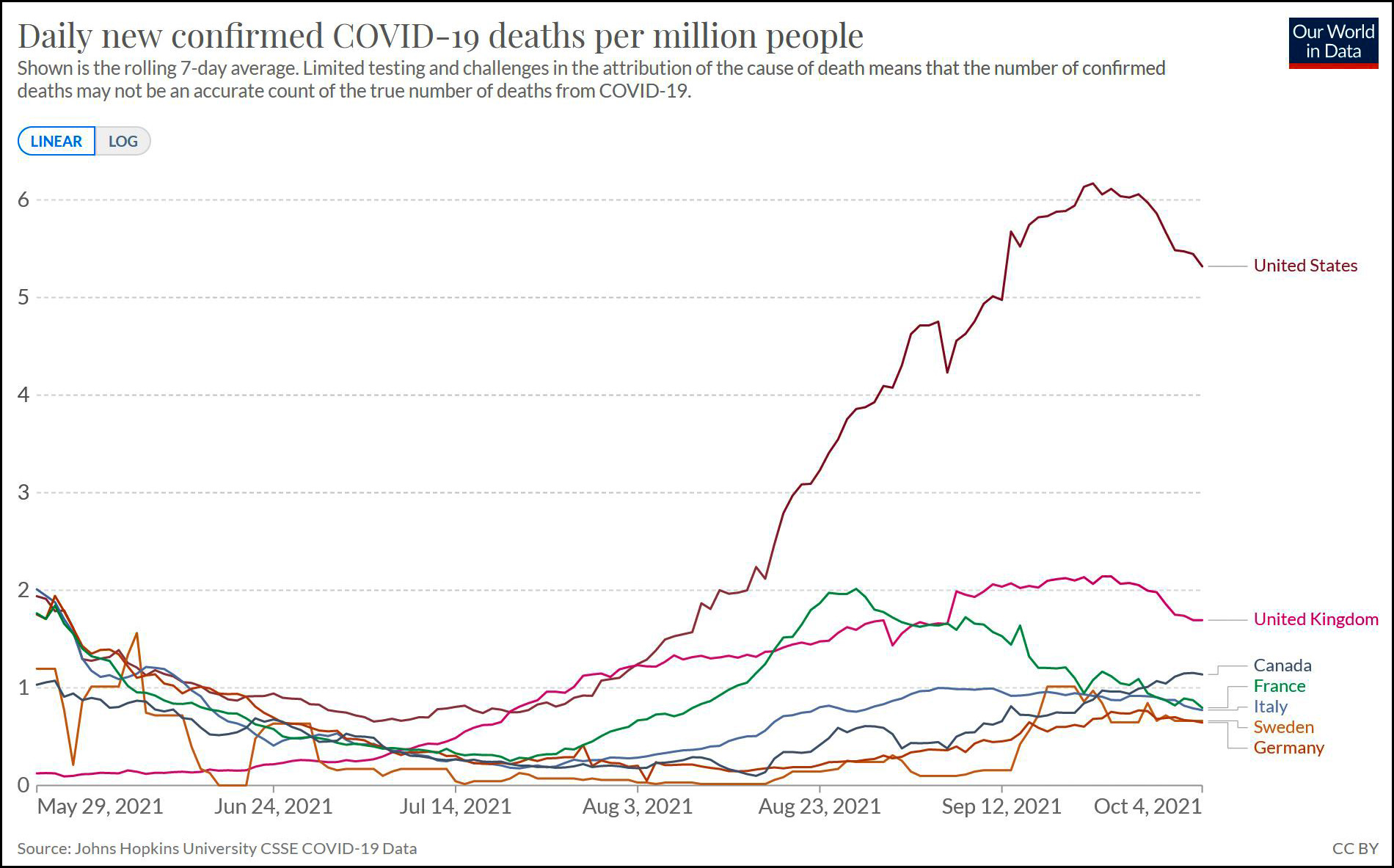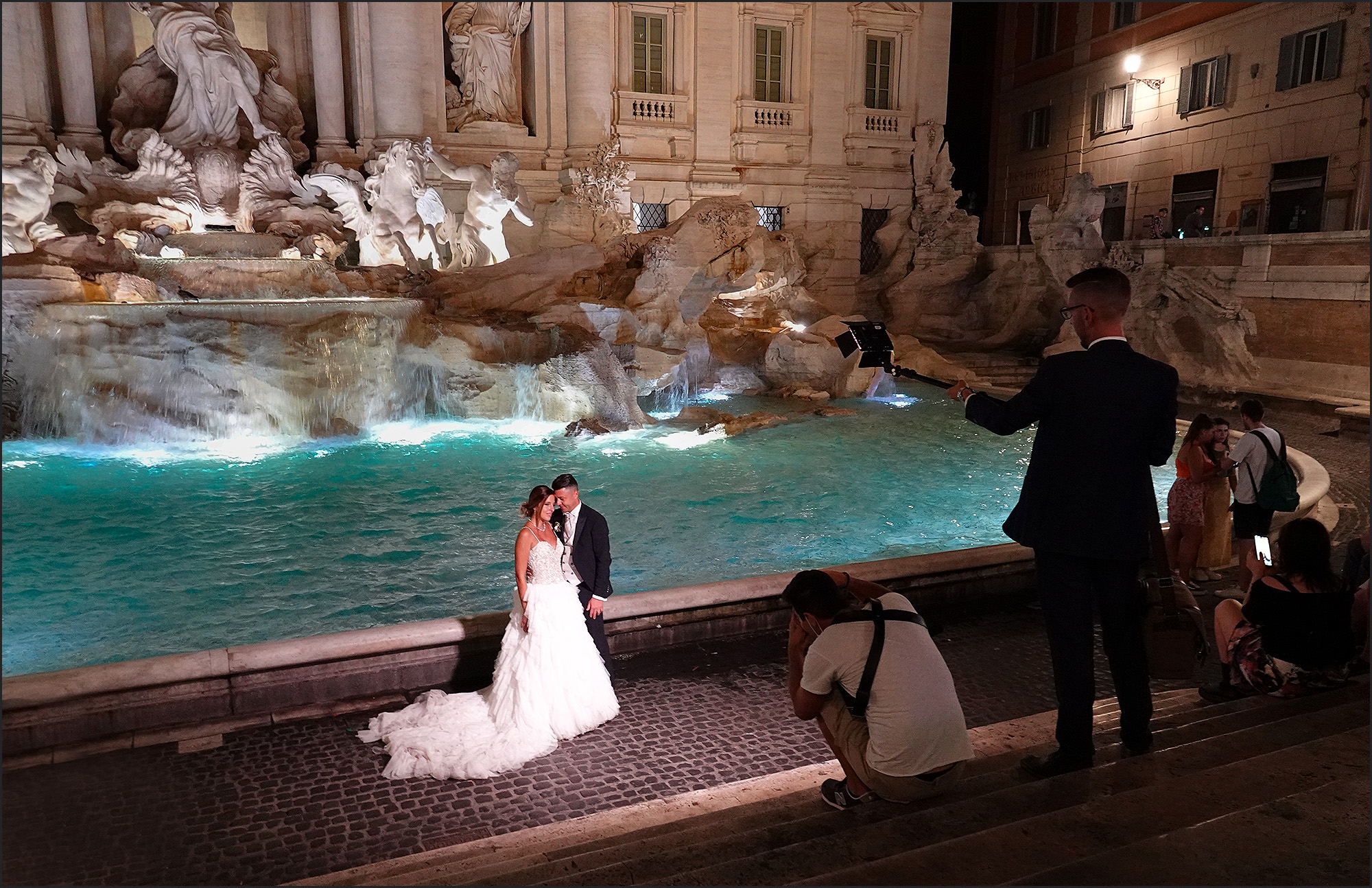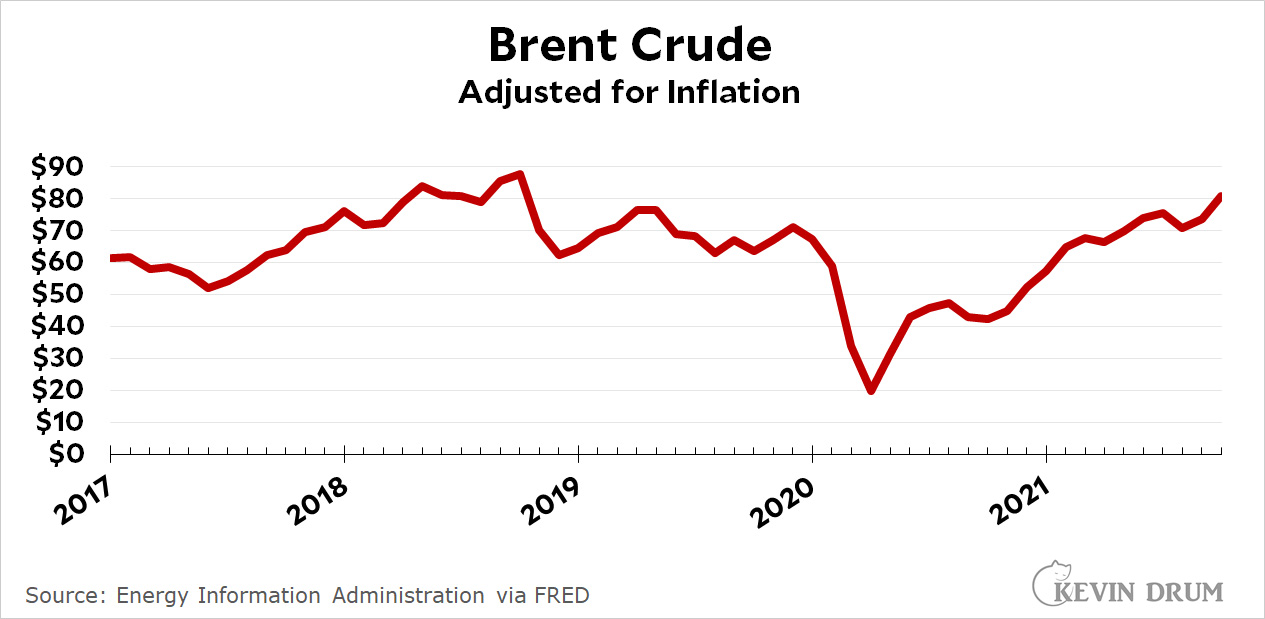We are now firmly on the downslope of our latest COVID-19 spike, but still immensely higher than our peer countries in Europe. In the United States, life is cheap.

Cats, charts, and politics

We are now firmly on the downslope of our latest COVID-19 spike, but still immensely higher than our peer countries in Europe. In the United States, life is cheap.

This was the view a couple of hours before sunset yesterday. Five hours later we had thunder and lightning and hailstones in the backyard. Hopper fled under the blankets, while Hilbert bravely rode out the storm on the coffee table with us. By 10 o'clock it was all over.

I have mentioned a number of times that there's a sizeable bloc of conservatives who believe—really, literally believe—that liberals hate America and are deliberately trying to subvert and cripple it. This level of paranoid delusion, fueled by Fox News and others, is what produces events like the January 6 insurrection. If you truly believed that the country was on the verge of collapse if Democrats governed for a few more years, you might have joined in.
This belief originated in the white evangelical community and mostly centered on social issues like gay marriage, abortion, religious freedom, and so forth. It has since spread beyond the religious community, but the religious ties are still there.
Now, you may or may not believe me about this. I gather that many of you don't, which makes it useful that in the Atlantic this month Emma Green interviewed Ryan Williams, president of the Claremont Institute.
The Claremont Institute used to be a fairly ordinary conservative think tank, but around 2016 or so it went around the bend. It was the source of the infamous essay, "The Flight 93 Election," and was an early supporter of Donald Trump. One of its senior fellows, John Eastman, wrote a brief in early 2021 trying to make the case that Vice President Mike Pence could declare Trump the winner of the 2020 election.
This makes Ryan Williams an interesting source of apocalyptic conservatism. Let's hear him out:
Emma Green: What do you see as the threats to Western civilization?
Ryan Williams: The one we have focused on at the Claremont Institute is the progressive movement....I would say the leading edge of progressivism now is this kind of woke, social-justice anti-racism. It’s a threat to limited government because it seems to take its lead from scholars like Ibram Kendi, [whose] definition of racism is any policy that results in disparate outcomes for different groups....The pursuit of equal results is only going to be successful in a new woke totalitarianism. I realize that sounds a little hyperbolic, but that seems to be the road we’re on.
....Even during the Civil War—I think we’re more divided now than we were then. As Lincoln said, we all prayed to the same God. We all believed in the same Constitution. We just differed over the question of slavery....Most of the Founders of America were Christians. There were radicals, to be sure. But there was much more consensus back then on what human nature is—on monotheism, broadly speaking, but really Christianity as well.
....Green: Do you think America can hang together in 2021 without Christianity at its core?
Williams: I’m ambivalent about that question. I think it would be bad for America if that longtime Christian core disintegrated. The Founders were pretty unanimous, with Washington leading the way, that the Constitution is really only fit for a Christian people.
....Green: Do you feel like there is a hopeful future for America, or do you think we are headed toward some sort of generationally defining conflict that could potentially be violent?
Williams: I worry about such a conflict. The Civil War was terrible. It should be the thing we try to avoid almost at all costs.
Hmmm. "Almost."
Williams is obviously trying to come across as a thinker, not an evangelical hysteric. Nevertheless, he believes that America is on its way to decay and ultimate ruin if progressives remain in charge, pushing their anti-Christian and anti-racist agenda. Presumably Williams means that neither Christians nor white people will put up with this, and a civil war is inevitable if progressives don't change their tune.
How common is this view? I can't say for sure, but I think I can say that it's not especially rare these days among conservatives. It is this kind of view, pushed down to the rank and file by Fox News, evangelical pastors, and the entire conservative media machine, that makes the right wing so dangerous these days: they are desperately afraid of what they think liberals are doing and are increasingly willing to do anything to stop it. They support Donald Trump not in spite of his all-but-open racism and stagey Christianity—which make even many Republicans cringe—but because of it.
And as I mentioned above, if you really believe in this, it makes sense that you would be willing to resort to violence to prevent progressives from running things. This is not normal politics. It is, as Williams says, a belief that Trump's version of conservatism is the only thing standing between modern progressives and the destruction of Western Civilization.
I continue to have mixed feelings about Facebook. Obviously they do some bad stuff in the service of making stupendous amounts of money, but every corporation does this. On the other hand, they obviously provide a service that a huge number of people like and use regularly. What's more, I don't have mixed feelings about government interventions designed to influence the content on their site. When it comes to speech, I trust virtually everyone—even Mark Zuckerberg—more than I trust government officials.
But I would like to unmix my feeling a bit. The recent series of whistleblower articles in the Wall Street Journal didn't impress me all that much, so that wasn't of much help. What I would like is a nice, readable, balanced summary of all the research that's been done regarding Facebook.
So far I haven't been able to find one. At various times I've googled everything I can find, but as a non-expert it's inevitable that I'm not really getting a thorough look at everything that's been published. Nor am I sure that I can accurately distinguish the quality of everything I read.
Does anyone know of such a thing? And please: I really, really don't want something from someone with an axe to grind on either side. I want just the facts as we know them today. Surely there's someone well-versed in this field who has done something like this?
In the New York Times today, Jonathan Weisman writes that Mitch McConnell has frequently used debt ceiling negotiations as leverage to get stuff he wants:
But two weeks before a potentially catastrophic default, Mr. McConnell has yet to reveal what he wants, telling President Biden in a letter on Monday, “We have no list of demands.”
....Mr. McConnell has said the government must not be allowed to stop paying its debts; he has also said he will not let any Republicans vote to raise the limit, while moving repeatedly to block Democrats from doing so themselves. Instead, he has prescribed a path forward for Democrats: Use a complicated budget process known as reconciliation to maneuver around a Republican filibuster that he refuses to lift.
Asked what he wanted, that was his answer: “As I have said for two months, I want them do it through reconciliation.”
The main issue with using reconciliation is that it would kill a couple of weeks of floor time.¹ That's a concession, but it's not that big a concession. So why not go ahead and use reconciliation to pass a debt ceiling bill, but instead of merely raising the ceiling, use the opportunity to get rid of it for good?
Maybe Chuck Schumer doesn't have the votes for that? Or maybe he wants to push things to a genuine crisis point and then use that as leverage to get Democratic skeptics to kill the filibuster? Or maybe he wants to force Republicans to filibuster the debt ceiling over and over and over. I'm genuinely curious about what the Democratic strategy is here.
Conversely, the Republican strategy is obvious: they just want to make trouble for Democrats, and they're sure that, one way or another, Schumer and President Biden will do the responsible thing and figure out a way to pay our bills. They're Democrats, after all, and bad government is not their goal. A feeling of responsibility is bred into their DNA.
¹This would not be part of the $3.5 trillion reconciliation bill, which is weeks away from being finished. It would be a separate, standalone debt ceiling bill, which is allowed by Senate rules.
Mitch McConnell says that Republicans aren't opposed to raising the debt limit. It's just that they don't plan to help. Democrats control the government, so if they want to raise it they should do it by themselves.
The problem, of course, is that Republicans aren't just standing around waiting for Democrats to do something. They are actively filibustering any attempt to raise the debt ceiling. Or are they?
GOP Sen @RoyBlunt tells us he and probably 44 GOP colleagues would be willing to give consent to waive debt limit filibuster but other 5-6 senator would not give UC
— Erik Wasson (@elwasson) October 4, 2021
Hot dog! Blunt says there are 44 Republicans willing to raise the debt ceiling in addition to the 50 Democrats who are already on board. That's 94 total, which is way more than enough to break a filibuster by the other six.¹ It would only take a day or two.
And yet, nobody seems willing to believe Blunt. I wonder why?
¹In his tweet, Blunt says 5-6 senators would withhold UC, or unanimous consent. Without diving into the weeds, this is essentially the same thing as a filibuster. It can be overridden by 60 senators with a couple of days of debate.
Facebook is offline, we're about to sail off the debt limit cliff, and a pandemic continues to kill thousands of people every day. So let's talk about postal banking.
David Dayen¹ and I maintain a (hopefully) good natured disagreement about postal banking: He thinks it's great and I think it's stupid. That means today brings good news for both of us. For David, it's because the USPS has made public a pilot program for check cashing in a few East Coast cities:
According to USPS spokesperson Tatiana Roy, the pilot launched on September 13 in four locations: Washington, D.C.; Falls Church, Virginia; Baltimore; and the Bronx, New York. To test the system, Prospect art director Jandos Rothstein visited a post office in Falls Church on Saturday and successfully cashed a business check onto a Visa gift card.
“At first, [the postal worker] said she didn’t think she could take the check,” Rothstein said. “But she read the check into her scanner and it went through.” He didn’t need to show identification or endorse the check. The post office charged Rothstein a flat fee of $5.95, for any amount up to $500.
The pilot is obviously good news for David, but why is it good news for me? It's simple: I can walk into a Walmart anytime I want and cash a $500 payroll check for four bucks. There are other similar places that charge similar amounts, and also, admittedly, some storefront operations that charge more.
The storefront operations are a problem, though it's unclear exactly what the solution is. More to the point, though, is that for most folks who have a semi-regular need to cash business checks, the Post Office is competing with Walmart, not the local branch of We-Cash-It on skid row.

Now, obviously this pilot program is just a small test for a single service. We can't draw any firm conclusions from it. Still, it encapsulates my fundamental problem with postal banking: there's no reason to think that the USPS has any kind of competitive advantage in this space. I mean, do you seriously think the Post Office can cash checks more efficiently than Walmart? Please.
This is true for other services as well. Sure, the Post Office has loads of branches, but so do banks and supermarkets and other retail outlets. Available real estate is just not a big deal.² And these other folks know a lot more about banking—or can team up with folks who do—than the Post Office does. There's simply no reason to think that the USPS can run a profitable banking operation any better than all the other folks who are already doing it.³
If you want to force banks to offer low-cost Basic Banking™ accounts to everyone who wants one, fine. It might be a good idea. Or it might not. But it sure seems like a better idea than having the feds start up a whole new bank on their own.
¹Editor of the American Prospect.
²Banks: 80,000. Grocery stores: 40,000. Post Office: 35,000. Subway: 25,000. Starbucks: 15,000. Walmart: 5,000.
³For the post office, the goal of postal banking is to provide a new revenue stream. So yes, it has to be profitable.
Here's a picture of a couple of Italian newlyweds getting their picture taken at 3 am in front of the Trevi Fountain. I wish them both a long and happy life.

Oil is in the news again. OPEC decided today not to approve a faster production increase, which has resulted in a "sharp increase" in the price of crude. So naturally you'd like to know just what the price of crude is. Your wish is my command:

With yet another debt ceiling battle upon us, I see that platinum coin zealotry is also upon us. For those of you who have more important things to do, the idea here is that the Treasury Department should mint a trillion-dollar platinum coin, deposit it at the Federal Reserve, and use it to pay all our bills. No increase in the debt ceiling needed!
How is this possible? Well, it turns out that in the statute authorizing the mint to produce commemorative platinum coins, someone made a mistake and failed to put any kind of dollar limit on the size of the coins. Theoretically, then, the mint could produce a coin worth a trillion dollars. Or hell, make it a quadrillion. That would take care of the debt ceiling forever.
Even Paul Krugman has now gotten into the act. He calls the coin a "silly gimmick," but figures Republicans are acting so irresponsibly that it's time to embrace a silly gimmick or two.
Which is fine, except for one thing: there are two sides to the platinum coin game. First, the treasury secretary has to mint it. Second, the Federal Reserve has to accept it.
But they won't, something that platinum coin fans routinely ignore. Unless you have some reason to think you can get Jay Powell on your side, the platinum coin ruse is a nonstarter even if the White House were willing to try it. So let's all give it a rest, shall we?
POSTSCRIPT: For what it's worth, even if the Fed did accept the coin, it would almost certainly be put on hold by court order. Eventually the Supreme Court would rule on it, and we should all have our doubts that the current court would be on our side.
On the other hand, Clarence Thomas might write a long dissent arguing that, by God, it's black letter law. Of course, his dissent might also include a long treatise on why the Federal Reserve is unconstitutional in the first place. It would be just like him.